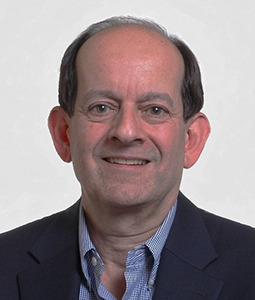Darla Moore School of Business
Directory
John Saleeby
| Title: | Adjunct Instructor |
| Department: | International Business Darla Moore School of Business |
| Email: | john.saleeby@moore.sc.edu |

Background
John Saleeby recently retired as vice president of corporate business development at ABB Inc., a publicly traded global leader in power and automation, where he helped the company grow across all 20 business units operating in the Americas region. He serves as an adjunct faculty member for the Darla Moore School of Business with a focus on Capstone Experience projects, strategy, and mergers and acquisitions. His career with ABB spans 30 years of progressive functional leadership in BU, division and corporate marketing and business development roles with a focus on energy, electric utility, industrial and commercial markets.
Saleeby served as a “go to” resource for strategic growth processes and direction as well as the project leader for many growth projects, including acquisitions, and as a member of ABB’s technology investment board and business incubator in the United States, and has represented ABB at various trade, government organization and investor relations activities. He has a PMBA from the University of South Carolina and a B.S. in Electrical Engineering from Duke University. He completed the merger and acquisition advisory program at Loyola University, Chicago, and is a member of the Alliance of Merger & Acquisition Advisors and a certified M&A adviser. John retired from the U.S. Air Force as a Lt. Colonel.
International Mergers & Acquisitions (IBUS 735), occasional guest speaker on M&A topics for Strategic Management (MGMT 478)
Students are exposed to a broad toolbox of inorganic and organic approaches to corporate growth and get the benefit of practical experience in considering these options. In recent classes, some student teams worked on projects such as helping companies in Columbia think about business strategy. Others developed recommendations for ABB on international projects such as how to approach the food and beverage industry in Africa or how to identify and participate in opportunities for microgrid development in Southeast Asia. Practical exposure helps students identify potential employment opportunities, prepare for interviews and make more immediate contributions to employers.
In nearly three decades of experience, I have had the opportunity to communicate with and across all organizational levels and functions, from the factory floor to the chairman, as well as across diverse energy and industrial business units. I have learned that I work best as a listener and strategic process facilitator who can help shape conversations to reach meaningful conclusions — sometimes decisions, sometimes just key take-away points. That is how I like to teach; I try to provide a strategic framework and awareness of options and then try to nurture open discussions with the class or project team.
The one thing is that it is not just one thing. In making strategic choices, including acquisitions, employees and leaders have to be resourceful in gathering and considering information, involve team members from many functions, choose the best approach from a variety of options, be persuasive and persistent in making recommendations, and execute with precision and accountability.
I like to use short lectures followed by open discussion of topics that involves the preparation, insights and experiences of students. I often use guest speakers to add great perspective from real-world experience. I try to recommend (or require) projects that are as realistic as possible. I insist on polished, professional communications. In my most recent capstone class, project teams presented research and recommendations to a panel of ABB executives, who participated in grading.
Classroom participation is critical to facilitate discussions. If you’re not enthusiastic about a particular topic, participation and contributions are required anyway. It’s the way business works. Team projects are cross-functional, team members are picked by the leader (me) and everyone needs to carry a fair share of the workload — all reflecting the real world. Students might sometimes be challenged to get a basic grasp of some elementary technical concepts, just as they would be if working for a consulting firm, for example.
Helping businesses reach their full potential. Helping people advance in work they enjoy and find rewarding.
I enjoy my grandkids and mission trips.